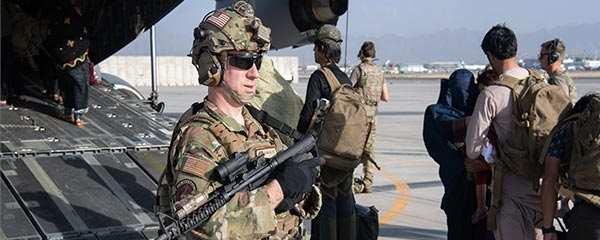Story Highlights
- 51% say 2003 Iraq war was a mistake, down from 57% in 2014
- 42% say 2001 Afghanistan war was a mistake, down from 49%
- Democrats now less likely to see either conflict as mistake
WASHINGTON, D.C. -- Amid a security situation in Iraq and Afghanistan that continues to be contentious, a smaller share of Americans now than last year view the conflict in Afghanistan or the Iraq war as a mistake. A slim majority, 51%, say the 2003 decision to send troops to Iraq was a mistake, down six percentage points from 2014. A little more than four in 10 (42%) say the 2001 military action in Afghanistan was a mistake, also a drop from last year's 49% reading.

Official military operations have ended in both Iraq and Afghanistan, but the U.S. is still heavily involved in those countries' security affairs. Over the past year, U.S. military involvement in both countries could be characterized as on the rise, or at least not on the wane. This week, President Barack Obama announced the deployment of an additional 450 troops to Iraq to aid in the fight against the militant group Islamic State, bringing the total number of troops sent since June of last year to 3,550. Obama made good in 2011 on a campaign pledge to from Iraq, though he has since had to reverse course as the Islamic State group overran portions of the country.
In Afghanistan, a muscular Taliban insurgency has also complicated Obama's efforts to withdraw troops from that country, a goal . In March, Obama announced he would maintain U.S. troop levels, which stand at 9,800, until at least the end of 2015, a break from previous plans for a speedier withdrawal.
Still, these countries' ongoing challenges have not led to a rising level of regret among the American populace for having entered Iraq or Afghanistan. Iraq remains the theater of operations Americans are more likely to see as a mistake, as has been the case since the U.S. began the military campaign in March 2003. Nonetheless, initial support for U.S. involvement was quite positive, but by the summer of 2004 a majority had decided that it was a mistake -- a quicker souring on the military action than had occurred in the 1960s after the nation's initial .
The percentage saying involvement in Iraq was a mistake rose to as high as 63% in 2008, and has varied since then, but has stayed above 50%. These most recent findings rank as one of the most "positive" assessments of the Iraq war since September 2006, when the country was evenly divided on this question.

Far fewer Americans have historically considered the Afghanistan military action as a mistake; in fact, at no point has a majority expressed this viewpoint. But the level considering it a mistake has gradually grown as the engagement has worn on, peaking at 49% last year before dipping back down this year.

Democrats Less Likely Today to See Iraq War as a Mistake
While Republicans remain the political group least likely to express regret for the Iraq or Afghanistan wars, a slight change in Democrats' and independents' views is why a lower proportion of the country now sees either conflict as a mistake. Compared with last year, Democrats are seven points less likely to see Iraq as a mistake and eight points less likely to see Afghanistan as a mistake. Independents saw similar movement on these questions.

Bottom Line
Recent events suggest the chapter has not closed on U.S. military involvement in Afghanistan or Iraq. But even in this context, the percentage of Americans viewing either conflict as a mistake has fallen relative to last year and, for Iraq, the figure is one of the lowest in recent history.
Survey Methods
Results for this ║┌┴¤═° poll are based on telephone interviews conducted June 2-7, 2015, with a random sample of 1,527 adults, aged 18 and older, living in all 50 U.S. states and the District of Columbia. For results based on the total sample of national adults, the margin of sampling error is ┬▒3 percentage points at the 95% confidence level. All reported margins of sampling error include computed design effects for weighting.
Each sample of national adults includes a minimum quota of 50% cellphone respondents and 50% landline respondents, with additional minimum quotas by time zone within region. Landline and cellular telephone numbers are selected using random-digit-dial methods.
View survey methodology, complete question responses, and trends.
Learn more about how works.

